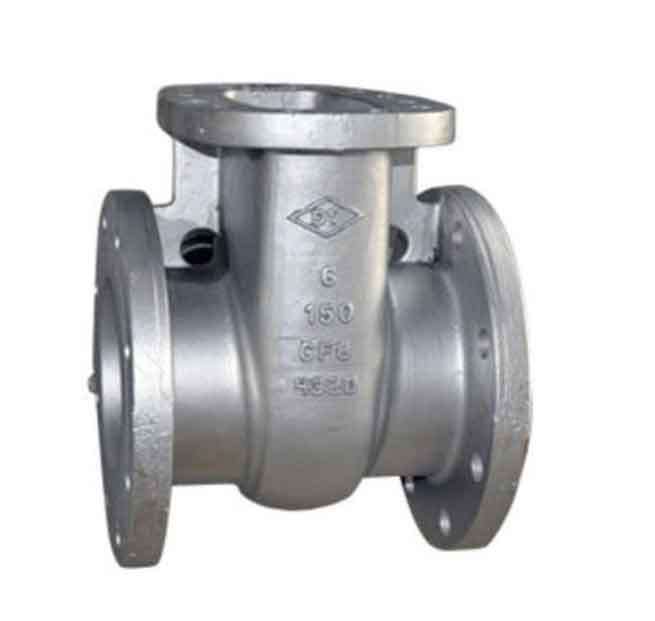Choosing the appropriate material for gate valve bodies is crucial for ensuring optimal performance and longevity in different operating conditions. The selection process involves considering various factors such as fluid compatibility, pressure and temperature requirements, corrosion resistance, and mechanical strength. Here are some considerations for choosing the right material for gate valve bodies:

- Fluid Compatibility: Select a material that is compatible with the fluid being transported through the valve. Different fluids have varying corrosive properties, pH levels, and temperatures, which can affect the material’s performance and integrity. Common materials used for gate valve bodies include cast iron, cast steel, stainless steel, bronze, and various alloys.
- Corrosion Resistance: Consider the susceptibility of the material to corrosion. Corrosive fluids, such as acids, alkalis, or seawater, require materials with high corrosion resistance. Stainless steel, bronze, and corrosion-resistant alloys like Duplex or Super Duplex stainless steel are often preferred in corrosive environments.
- Pressure and Temperature Ratings: Ensure that the selected material can withstand the operating pressure and temperature requirements. The material should have sufficient mechanical strength to handle the system’s pressure and temperature without deformation or failure. Cast steel or forged steel materials are commonly used for high-pressure applications, while cast iron may be suitable for lower pressure environments.
- Mechanical Strength: Evaluate the mechanical strength of the material to withstand the stresses and forces acting on the valve body. Consider factors such as tensile strength, yield strength, and impact resistance. Cast steel or ductile iron materials are known for their high mechanical strength, making them suitable for demanding applications.
- Wear and Erosion Resistance: In applications where the fluid contains abrasive particles or exhibits erosion properties, select materials with excellent wear resistance. Materials such as stainless steel with higher hardness or alloys like Stellite® can withstand erosive conditions and prolong the valve body’s lifespan.
- Temperature Extremes: If the valve will be exposed to extreme temperatures, select a material that can withstand thermal expansion and contraction without compromising its mechanical properties. High-temperature applications may require materials like stainless steel or special alloys that exhibit excellent heat resistance.
- Standards and Codes: Ensure that the selected material meets relevant industry standards and codes, such as ASTM (American Society for Testing and Materials) or API (American Petroleum Institute) specifications. Compliance with these standards ensures the material’s quality and performance reliability.
- Cost Considerations: Evaluate the material cost, availability, and overall lifecycle costs when selecting the gate valve body material. While some materials may offer superior properties, they might also come at a higher cost. Consider the balance between performance requirements and budget constraints.
Consulting with material suppliers, valve manufacturers, and industry experts can provide valuable guidance in selecting the appropriate material for gate valve bodies. They can offer insights based on specific application requirements, industry standards, and their experience with different materials in similar operating conditions. Making an informed material selection ensures optimal performance, reliability, and longevity of gate valve bodies in various industrial applications.
